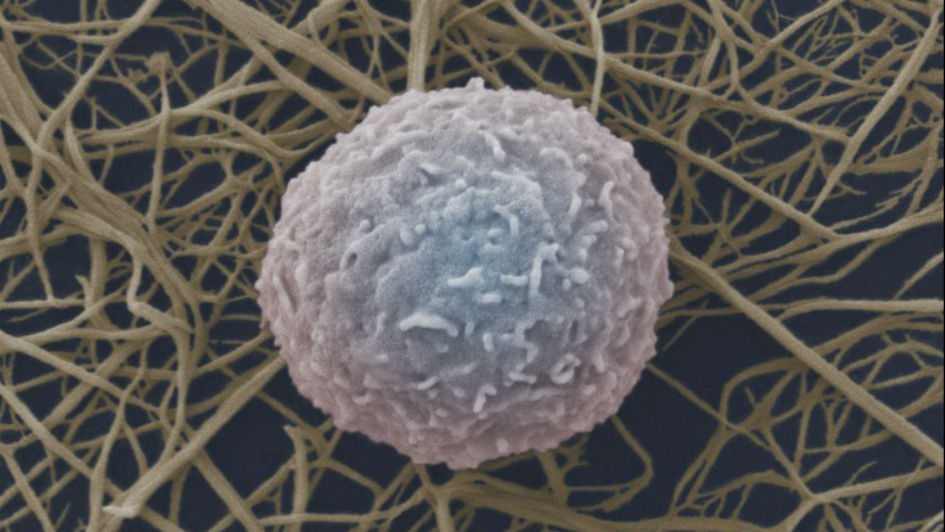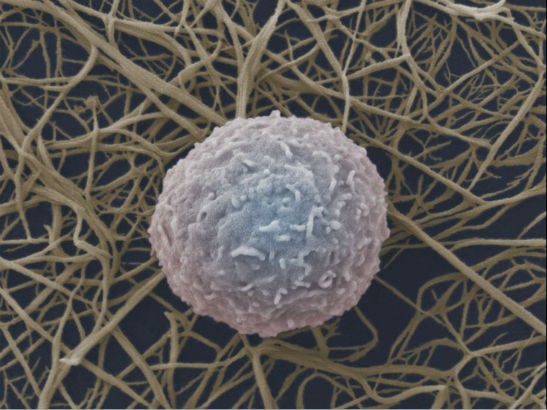
A white blood cell (photo: Wellcome Images)
In the world of cancer research, immunotherapy is causing a stir.
In a new paper in the journal Nature published this week, researchers have carried out early stage research to turn the body’s own defences against cancer. The study has been covered widely in the media, including The Guardian, The Telegraph and The Independent — and journalists asked The Institute for Cancer Research, London, for comment.
We asked a new team leader at the ICR, what he thought of the research and the field of immunotherapy as a whole.
Professor Alan Melcher is Professor of Translational Immunotherapy at the ICR and Honorary Consultant Oncologist at The Royal Marsden NHS Foundation Trust.
He told us: "Immunotherapy for cancer is a rapidly evolving and exciting field. This new study, in mice and a small number of patients, shows that an immune response against the antigens within a cancer can be triggered by a new type of cancer vaccine.
"This vaccine is given into the blood, and comprises very small nanoparticules made up of fat joined to RNA (a type of genetic code for the tumour antigens). These nanoparticles target particular cells in the mice, called dendritic cells, which are key to stimulating an immune response.”
'Great hope'
Although this is exciting news, the potential treatment will take some time to reach the clinic. As Prof Melcher pointed out: "Although the research is very interesting, it is still some way away from being of proven benefit to patients. In particular, there is uncertainty around whether the therapeutic benefit seen in the mice by targeting a small number of antigens will also apply to humans, and the practical challenge of manufacturing nanoparticles for widespread clinical application."
Although many immunotherapies are in an early stage of development, in conjunction with a better understanding of cancer and the mechanisms that drive it, the future looks promising.
As Professor Raj Chopra, Head of Cancer Therapeutics described in a previous blog post: “We are in an era of great hope for cancer treatment, with an explosion in knowledge of how cancers develop, evolve and acquire drug resistance, which is feeding through into innovative new treatments like immunotherapy.”
Here at the ICR, there is also a lot going on in the field of immunotherapy.
More to come
For example, at the end of last year a viral immunotherapy known as T-Vec became the first to be approved in Europe. Researchers from the ICR and The Royal Marsden led the UK arm of the major phase III trial for T-VEC, which was the first to definitively show patient benefit for a viral immunotherapy for cancer.
Then, in April this year, the international cancer conference, the American Association for Cancer Research Annual Meeting 2016, was buzzing with news of new data on the immunotherapy drugs known as checkpoint inhibitors.
With new immunotherapy experts joining the ICR recently, such as Professors Chopra and Melcher, we predict there will be lots more of interest in the future. We will keep you posted with developments.
